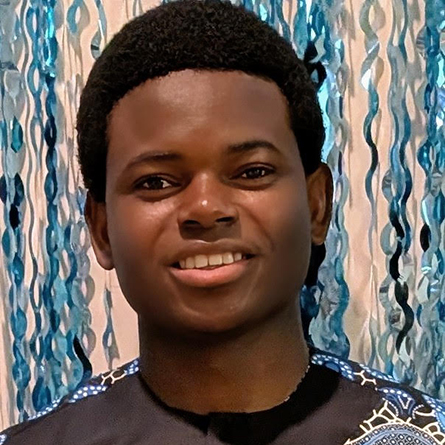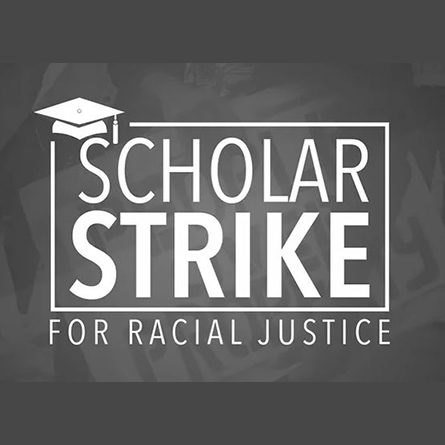
#ScholarStrike
The national strike started with a single tweet following the police shooting of Jacob Blake, an unarmed Black man in Kenosha, Wisconsin.
“I would be down as a professor to follow the NBA and Strike for a few days to protest police violence in America,” tweeted Anthea Butler, who serves as associate professor of religious studies and Africana studies at the University of Pennsylvania.
From this, #ScholarStrike has grown into a national teach-in movement involving thousands of professors and students from colleges and universities across America who are determined to combat racism and police violence. The strike took place Sept. 8-9.
“Scholar Strike is meant to disrupt the everyday routines of academia, and to show solidarity with other workers striking for Black lives, particularly the athletes of the WNBA and NBA,” said Cherise Harris, co-director of Conn’s Center for the Critical Study of Race and Ethnicity. “In a variety of ways, academic professionals are disrupting the status quo and refusing to stand by while racism and violence devastate Black Americans' lives and communities.”
Within days of Butler’s original tweet, a dedicated YouTube channel was created for Scholar Strike, which features dozens of lectures and discussions on race-related issues, and participating institutions designed original programming for their students, faculty and staff during the two-day period.
Departments across Conn’s campus demonstrated their solidarity with the strike through official statements of support and the sponsoring of live events that offered members of the community a chance to directly address the current national climate of racial unrest that has been exacerbated by a global pandemic, staggering unemployment and repeated acts of police brutality against unarmed people of color.
The Otto and Fran Walter Commons for Global Study and Engagement held two Zoom events during the teach-in while suspending its normal schedule. The first, a discussion facilitated by Ariella Rotramel, the Vandana Shiva Assistant Professor of Gender, Sexuality and Intersectionality Studies, explored issues of cross-racial solidarity and confronting police brutality.
The second involved a live interview with Carroll Bogert, president of The Marshall Project, an award-winning non-profit news organization devoted to U.S. criminal justice reform. The interview was conducted by Jozette Moses ’21, editor-in-chief of The College Voice, and Amanda Sanders ’22, managing editor, and examined how the media represents policing and racial injustice in America.
“We are all in,” said Amy Dooling, director of the Walter Commons and associate dean of global initiatives. “We devoted all of our meetings, including our meeting with our Walter Commons fellows, to the topic of anti-racist work in our own sphere of influence and we postponed other meetings to disrupt business as usual.”
Forceful statements of support echoed from every corner of the College and from a diverse spectrum of fields and disciplines. The department of chemistry posted a statement acknowledging several victims of police violence:
“Our thoughts are with the people all around the world protesting racial violence and police brutality, including the tragic deaths of Ahmaud Arbery, Breonna Taylor and George Floyd. We are deeply saddened by these incidents and write today to express solidarity with communities of color and all who are mourning. Black lives matter.”

